Main menu
Common skin conditions

NEWS
Join DermNet PRO
Read more
Quick links
Cradle cap — extra information
Cradle cap
Author: Vanessa Ngan, Staff Writer, 2002. Updated by Dr Thomas Stewart, General Practitioner, Sydney, Australia, November 2017.
Introduction
Demographics
Causes
Differential diagnoses
Diagnosis
Treatment
What is cradle cap?
Cradle cap, or pityriasis capitis, is infantile seborrhoeic dermatitis affecting the scalp.
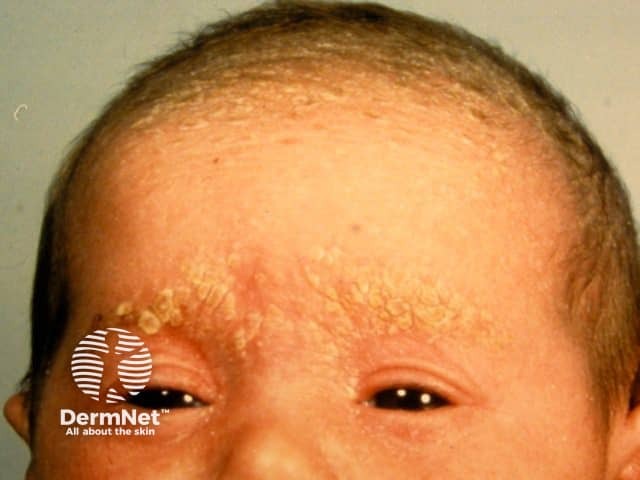
Cradle cap
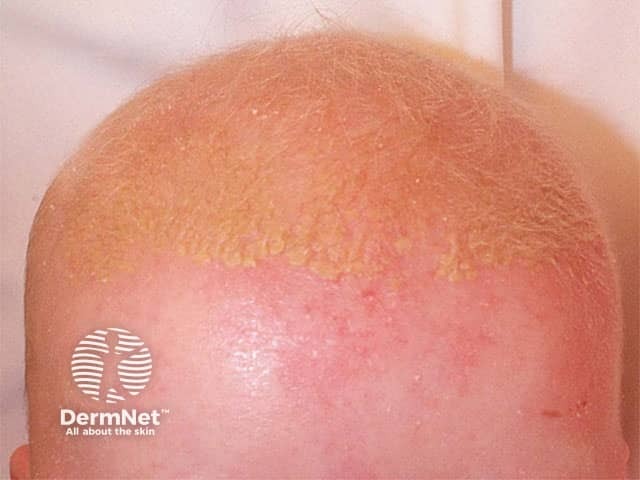
Seborrhoeic dermatitis
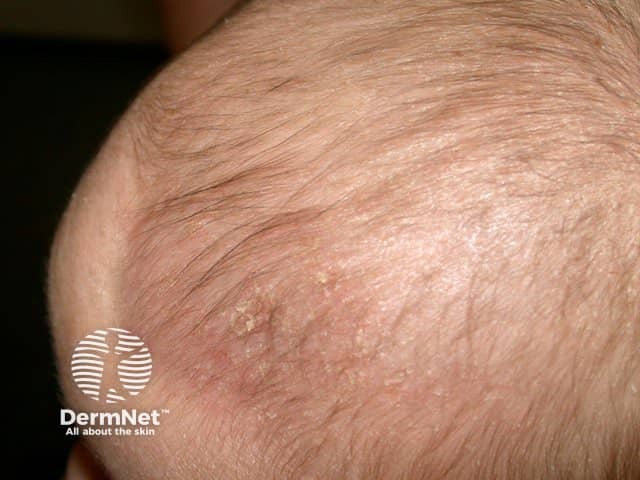
Cradle cap
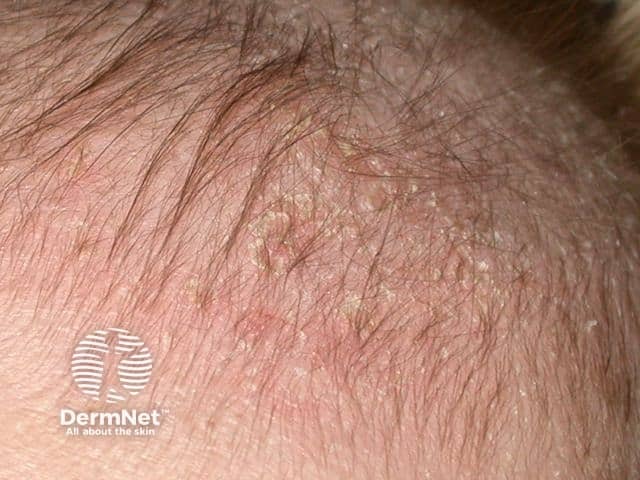
Cradle cap
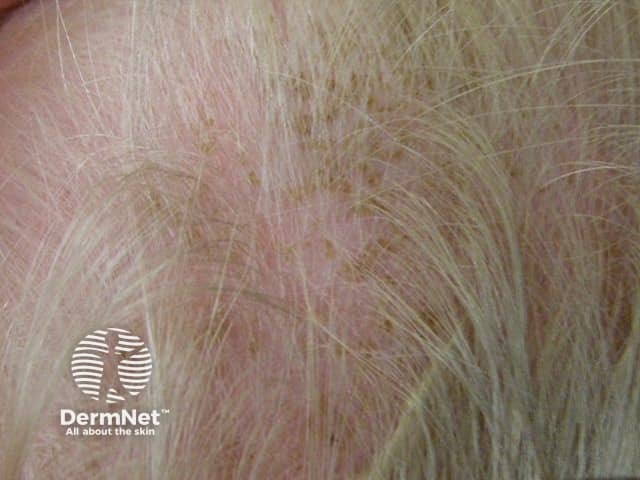
Cradle cap
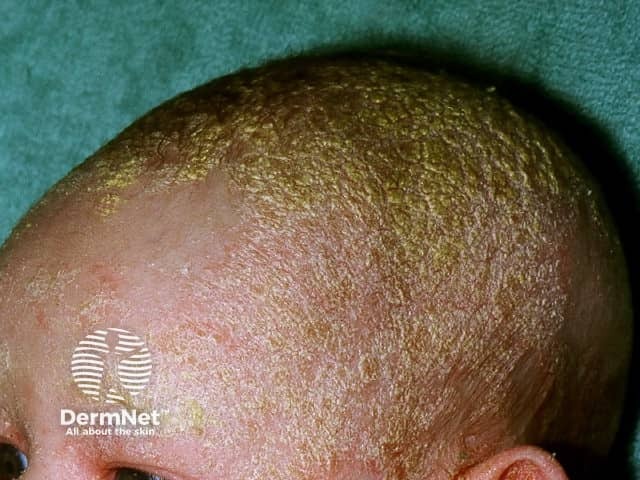
Cradle cap
Who gets cradle cap?
Cradle cap is extremely common with an estimated prevalence of 9.5–10%. It is seen most commonly in infants aged between 3 weeks and 12 months with peak prevalence at 3 months of age [1]. There is no sex or racial predilection.
What causes cradle cap?
The cause of cradle cap is not known. It may be related to hyperactivity of sebaceous glands responsive to residual circulating maternal androgens. Malassezia has also been implicated although its exact role is not clear.[2,3]
What are the clinical features of cradle cap?
Classically, there is a non-inflammatory eruption of greasy yellow scales on the scalp. The vertex and frontal areas are most commonly affected. Cradle cap is usually not pruritic and infants are otherwise generally well.
What is the differential diagnosis for cradle cap?
Other scalp conditions that may resemble cradle cap are:
How is cradle cap diagnosed?
Diagnosis is usually made clinically based on recognition of typical lesions on the scalp of an infant.
What is the treatment for cradle cap?
The initial approach, especially in mild and localised disease, should be conservative, involving either application of gentle emollient or repeated shampooing, followed by careful removal of scales using a soft toothbrush or comb.
More extensive or resistant disease may be treated with a low-potency topical steroid (eg, hydrocortisone 1%) or azole (eg ketoconazole 2%) for 1–2 weeks. Topical steroid may be preferred if there is a significant inflammatory component.[4,5]
What is the usual course of cradle cap?
Cradle cap is benign and self-limiting. It usually resolves without intervention over the course of weeks to several months. If disease persists beyond 12 months, the diagnosis should be reconsidered.
References
- Foley P, Zuo Y, Plunkett A, et al. The frequency of common skin conditions in preschool-aged children in Australia: seborrheic dermatitis and pityriasis capitis. Arch Dermatol. 2003;139(3):318. PubMed.
- Kim GK. Seborrheic dermatitis and malassezia species. J Clin Aesthet Dermatol. 2009;2(11):14-17. PubMedCentral.
- Ro BI, Dawson TL. The role of sebaceous gland activity and scalp microfloral metabolism in the etiology of seborrheic dermatitis and dandruff. J Investig Dermatol Symp Proc. 2005;10(3):194-7. PubMed.
- Okokon EO, Verbeek JH, Ruotsalainen JH, et a. Topical antifungals for seborrheic dermatitis. Cochrane database Syst Rev. 2015 May 2;(5):CD008138. doi: 10.1002/14651858.CD008138.pub3. PubMed.
- Wananukul S, Chatproedprai S, Charutragulchai W. Randomised double-blind split-side comparison study of moisturizer containing licochalcone vs. 1% hydrocortisone in the treatment of infantile seborrheic dermatitis. J Eur Acad Dermatol Venereol. 2012;26(7):894-7. PubMed.
On DermNet
Other websites
- Seborrhoeic dermatitis — Medscape Drugs & Diseases
- Cradle cap — NHS Choices
